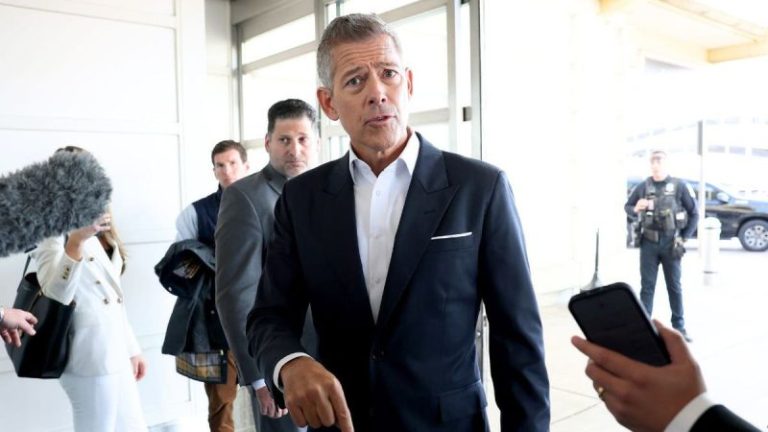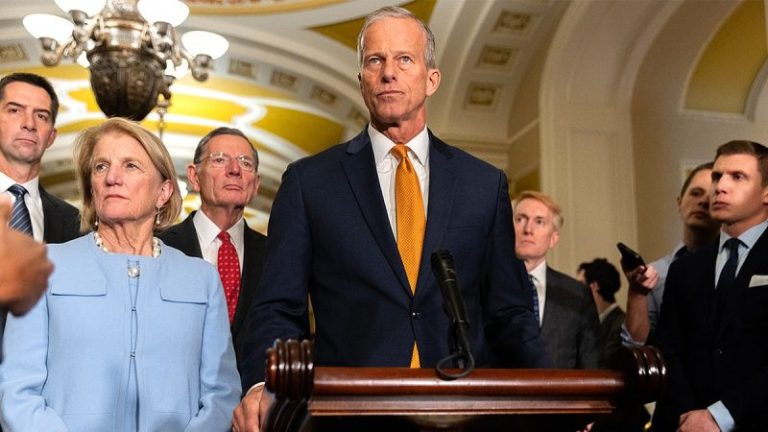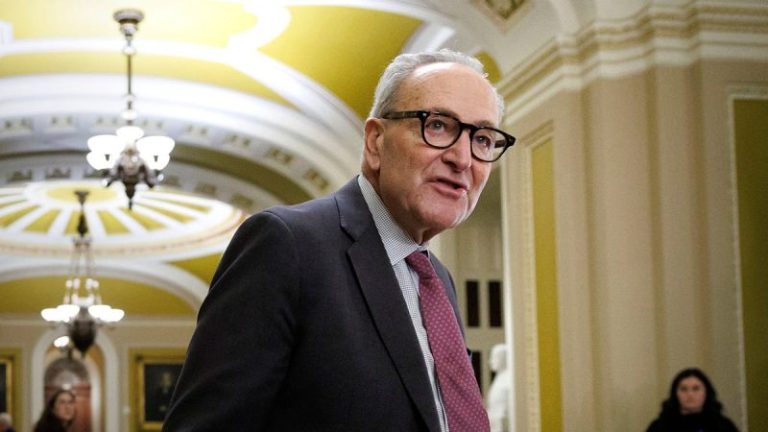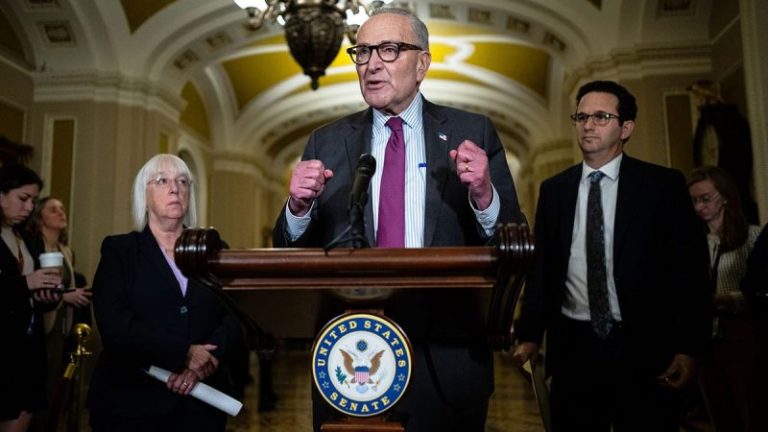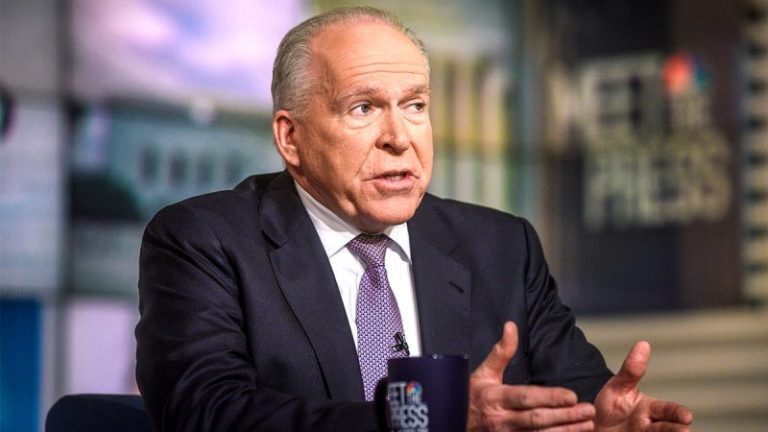: A federal grand jury has subpoenaed former CIA Director John Brennan, former FBI officials Peter Strzok and Lisa Page, among others as part of the Justice Department’s investigation into the origins of the Trump-Russia probe, Fox News Digital has learned.
Sources told Fox News Digital Brennan; Strzok, the FBI’s former deputy assistant director of counterintelligence; and Page, a former FBI lawyer, were served with federal subpoenas on Friday.
Law enforcement sources told Fox News Digital that up to 30 subpoenas will be issued in the coming days relating to the investigation.
The grand jury is out of the Southern District of Florida. U.S. attorney for the Southern District of Florida Jason Reding Quiñones is supervising the probe.
Fox News Digital first reported this summer that Brennan was under criminal investigation.
Strzok and Page first came under scrutiny in 2018 when Justice Department Inspector General Michael Horowitz uncovered a series of anti-Trump text messages between them. Both were assigned to work on Special Counsel Robert Mueller’s team in 2017.
Page served on Mueller’s team on a short detail, returning to the FBI’s Office of General Counsel in July 2017. Strzok, though, was removed from the team and was reassigned to the FBI’s Human Resources Division. Prior to serving in the special counsel’s office, Strzok was a top agent in the bureau’s counterintelligence division.
Strzok is the FBI agent who, in July 2016, opened the FBI’s initial Russia investigation, which was nicknamed ‘Crossfire Hurricane’ inside the bureau.
Page resigned from the bureau in May 2018, and Strzok eventually was fired in August 2018.
Strzok was fired from the bureau in August 2018 after months of scrutiny regarding the anti-Trump text messages exchanged between himself and Page.
During congressional testimony in 2018, Strzok confirmed that he and Page were involved in an extramarital affair.
As for the criminal investigation into Brennan, CIA Director John Ratcliffe referred evidence of wrongdoing by Brennan to FBI Director Kash Patel for potential prosecution, DOJ sources told Fox News Digital.
Sources, at the time, said that the referral was received and told Fox News Digital that a criminal investigation into Brennan was opened and is underway. DOJ sources declined to provide further details. It is unclear, at this point, if the investigation spans beyond his alleged false statements to Congress.
The Brennan investigation came after Ratcliffe, this summer, declassified a ‘lessons learned’ review of the creation of the 2017 Intelligence Community Assessment (ICA). The 2017 ICA alleged Russia sought to influence the 2016 presidential election to help then-candidate Donald Trump. But the review found that the process of the ICA’s creation was rushed with ‘procedural anomalies,’ and that officials diverted from intelligence standards.
It also determined that the ‘decision by agency heads to include the Steele Dossier in the ICA ran counter to fundamental tradecraft principles and ultimately undermined the credibility of a key judgment.’
The dossier — an anti-Trump document filled with unverified and wholly inaccurate claims that was commissioned by Fusion GPS and paid for by Democrat presidential candidate Hillary Clinton’s campaign and the DNC — has been widely discredited. Last week’s review marks the first time career CIA officials have acknowledged politicization of the process by which the ICA was written, particularly by Obama-era political appointees.
Records declassified as part of that review further revealed that Brennan did, in fact, push for the dossier to be included in the 2017 ICA.
Brennan testified to the House Judiciary Committee in May 2023, however, that he did not believe the dossier should be included in that intelligence product.
Ratcliffe was not surprised by the review’s findings, a source familiar told Fox News Digital, given the director’s long history of criticizing Brennan’s politicization of intelligence. But Ratcliffe was compelled to refer aspects of Brennan’s involvement to the FBI for review of possible criminality, the source said.
The source was unable to share the sensitive details of Ratcliffe’s criminal referral to the FBI with Fox News Digital, but said that Brennan ‘violated the public’s trust and should be held accountable for it.’
The false statements portion of the probe stems from a newly declassified email sent to Brennan by the former deputy CIA director in December 2016. That message said that including the dossier in the ICA in any capacity jeopardized ‘the credibility of the entire paper.’
‘Despite these objections, Brennan showed a preference for narrative consistency over analytical soundness,’ the new CIA review states. ‘When confronted with specific flaws in the Dossier by the two mission center leaders – one with extensive operational experience and the other with a strong analytic background – he appeared more swayed by the Dossier’s general conformity with existing theories than by legitimate tradecraft concerns.’
The review added: ‘Brennan ultimately formalized his position in writing, stating that ‘my bottomline is that I believe that the information warrants inclusion in the report.’’
But Brennan testified the opposite in front of Congress in May 2023.
‘The CIA was very much opposed to having any reference or inclusion of the Steele dossier in the Intelligence Community Assessment,’ Brennan testified before the House committee, according to the transcript of his deposition reviewed by Fox News Digital. ‘And so they sent over a copy of the dossier to say that this was going to be separate from the rest of that assessment.’
CIA officials at the time of its creation pushed back against the FBI, which sought to include the dossier, arguing that the dossier should not be included in the assessment, and casting it as simply ‘internet rumor.’
Ultimately, Steele’s reporting was not included in the body of the final ICA prepared for then-President Barack Obama, but instead detailed in this footnote, ‘largely at the insistence of FBI’s senior leadership,’ according to a review by the Justice Department inspector general, and later, the Senate Intelligence Committee.
But back in June 2020, Ratcliffe, while serving as director of national intelligence, declassified a footnote of the 2017 ICA, which revealed that the reporting of Trump dossier author Christopher Steele had only ‘limited corroboration’ regarding whether then-President-elect Trump ‘knowingly worked with Russian officials to bolster his chances of beating’ Hillary Clinton and other claims.
The footnote, also known as ‘Annex A’ of the 2017 ICA, exclusively obtained by Fox News Digital in June 2020, spanned less than two pages and detailed reporting by Steele, the former British spy who authored the unverified anti-Trump dossier — a document that helped serve as the basis for controversial Foreign Intelligence Surveillance Act (FISA) warrants obtained against former Trump campaign aide Carter Page.
Steele’s reporting, at the time, was commissioned by opposition research firm Fusion GPS and funded by the Clinton campaign and the Democratic National Committee (DNC) through law firm Perkins Coie.
The footnote made clear the internal concerns officials had over that document.
‘An FBI source (Steele) using both identified and unidentified subsources, volunteered highly politically sensitive information from the summer to the fall of 2016 on Russian influence efforts aimed at the US presidential election,’ the annex read. ‘We have only limited corroboration of the source’s reporting in this case and did not use it to reach the analytic conclusions of the CIA/FBI/NSA assessment.’
‘The source collected this information on behalf of private clients and was not compensated for it by the FBI,’ it continued.
But the annex notes that Steele’s reporting was ‘not developed by the layered subsource network.’
‘The FBI source caveated that, although similar to previously provided reporting in terms of content, the source was unable to vouch for the additional information’s sourcing and accuracy,’ the annex states. ‘Hence this information is not included in this product.’
Justice Department Inspector General Michael Horowitz also reviewed the inclusion of Steele’s reporting in the ICA during his review of alleged misconduct related to the Foreign Intelligence Surveillance Act, or FISA.
His report, released in late 2019, found that there were ‘significant inaccuracies and omissions’ in FISA warrants for former Trump campaign aide Page. Those warrants relied heavily on Steele’s reporting, despite the FBI not having had specific information corroborating allegations against Page that were included in Steele’s reporting.
Meanwhile, Fox News Digital exclusively reported in October 2020 that Brennan briefed former President Obama and administration officials on intelligence that then-Democrat nominee former Secretary of State Clinton was stirring up a plan to tie Trump to Russia.
Ratcliffe, as director of national intelligence, declassified Brennan’s handwritten notes memorializing that meeting, which were exclusively obtained by Fox News Digital in October 2020.
On July 28, 2016, Brennan briefed Obama on a plan from one of Clinton’s campaign foreign policy advisors ‘to vilify Donald Trump by stirring up a scandal claiming interference by the Russian security service.’
Comey, then-Vice President Joe Biden, former Attorney General Loretta Lynch and former Director of National Intelligence James Clapper were in the Brennan-Obama briefing.
After that briefing, the CIA properly forwarded that information through a Counterintelligence Operational Lead (CIOL) to Comey and then-Deputy Assistant Director of Counterintelligence Peter Strzok, with the subject line: ‘Crossfire Hurricane.’
Fox News Digital exclusively obtained and reported on the CIOL in October 2020, which stated: ‘The following information is provided for the exclusive use of your bureau for background investigative action or lead purposes as appropriate.’
‘Per FBI verbal request, CIA provides the below examples of information the CROSSFIRE HURRICANE fusion cell has gleaned to date,’ the memo continued. ‘An exchange (REDACTED) discussing US presidential candidate Hillary Clinton’s approval of a plan concerning US presidential candidate Donald Trump and Russian hackers hampering US elections as a means of distracting the public from her use of a private email server.’
The FBI on July 31, 2016, opened a counterintelligence investigation into whether candidate Trump and members of his campaign were colluding or coordinating with Russia to influence the 2016 campaign. That investigation was referred to inside the bureau as ‘Crossfire Hurricane.’
Former Special Counsel Robert Mueller was appointed to take over the FBI’s original ‘Crossfire Hurricane’ investigation. After nearly two years, Mueller’s investigation, which concluded in March 2019, yielded no evidence of criminal conspiracy or coordination between the Trump campaign and Russian officials during the 2016 presidential election.
Shortly after, John Durham was appointed as special counsel to investigate the origins of the ‘Crossfire Hurricane’ probe.
Durham found that the FBI ‘failed to act’ on a ‘clear warning sign’ that the bureau was the ‘target’ of a Clinton-led effort to ‘manipulate or influence the law enforcement process for political purposes’ ahead of the 2016 presidential election.
‘The aforementioned facts reflect a rather startling and inexplicable failure to adequately consider and incorporate the Clinton Plan intelligence into the FBI’s investigative decision-making in the Crossfire Hurricane investigation,’ Durham’s report states.
‘Indeed, had the FBI opened the Crossfire Hurricane investigation as an assessment and, in turn, gathered and analyzed data in concert with the information from the Clinton Plan intelligence, it is likely that the information received would have been examined, at a minimum, with a more critical eye,’ the report continued.
Durham, in his report, said the FBI ‘failed to act on what should have been—when combined with other incontrovertible facts— a clear warning sign that the FBI might then be the target of an effort to manipulate or influence the law enforcement process for political purposes during the 2016 presidential election.’
The Justice Department, earlier this year, formed a ‘strike force’ to assess evidence publicized by Director of National Intelligence Tulsi Gabbard relating to former President Barack Obama and his top national security and intelligence officials’ alleged involvement in the origins of the Trump–Russia collusion narrative.
Meanwhile, Fox News Digital also first reported that Comey was under criminal investigation. Comey has been charged with making false statements and obstruction of a congressional proceeding.
Comey has pleaded not guilty. His trial is expected to begin in January.
This post appeared first on FOX NEWS





